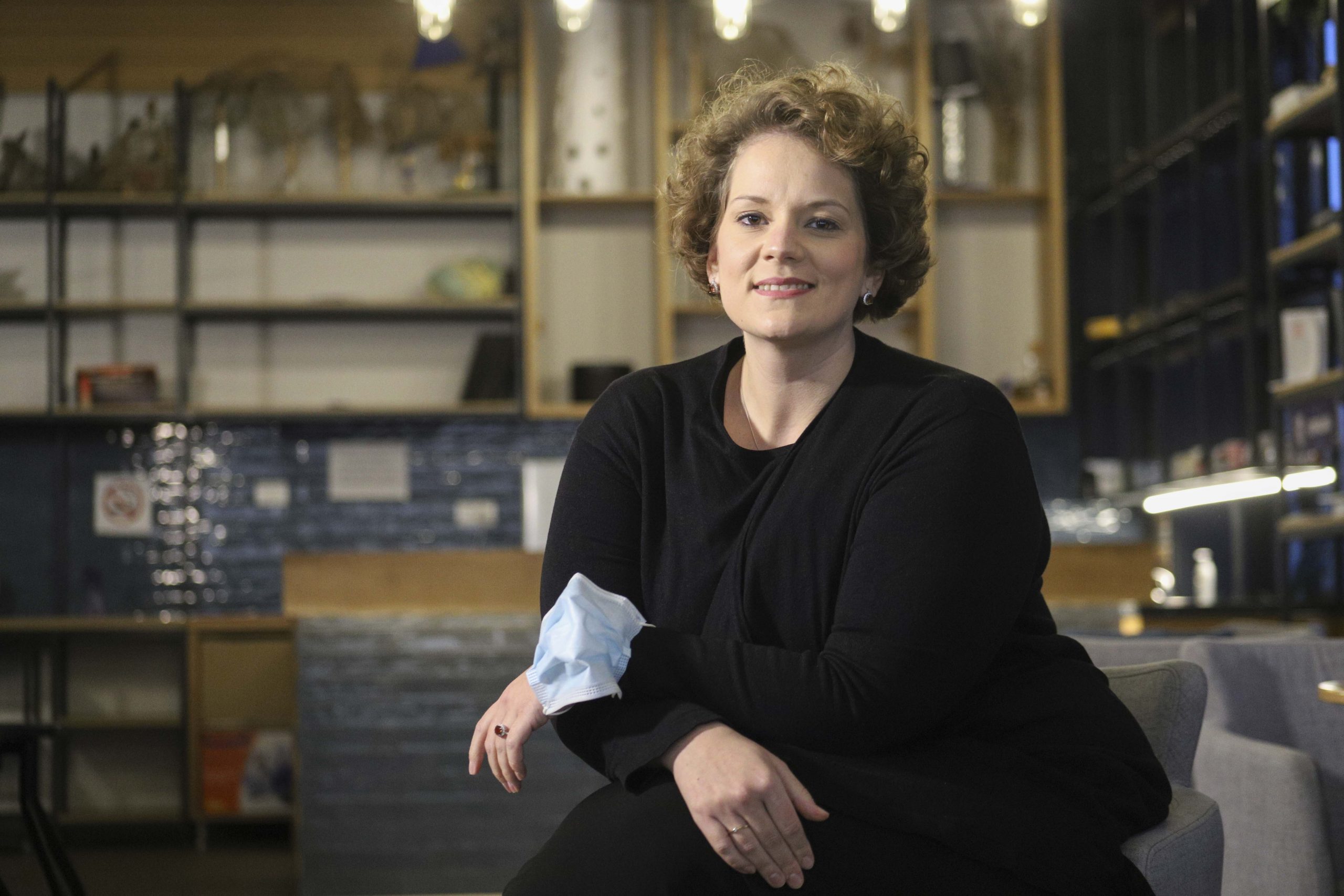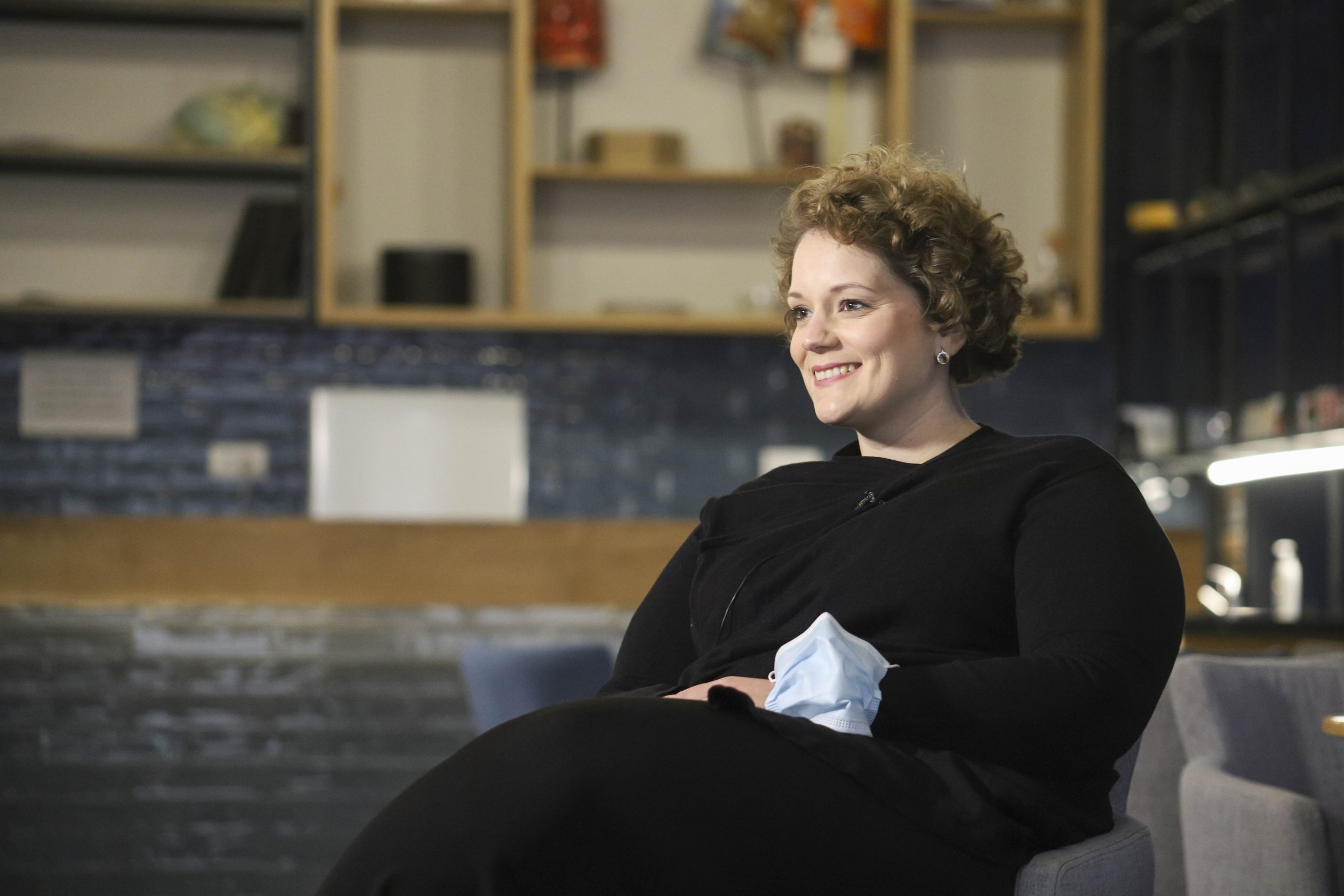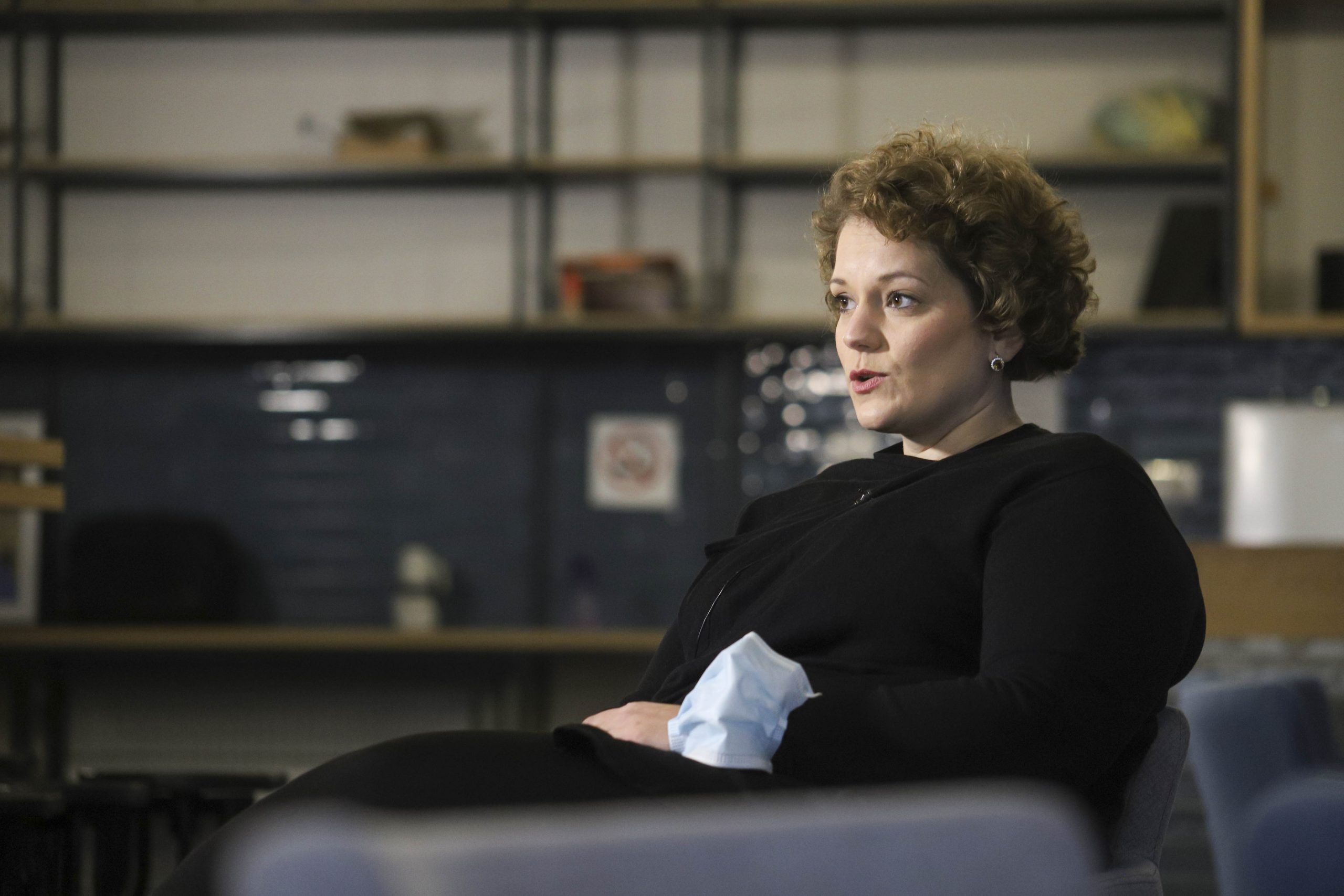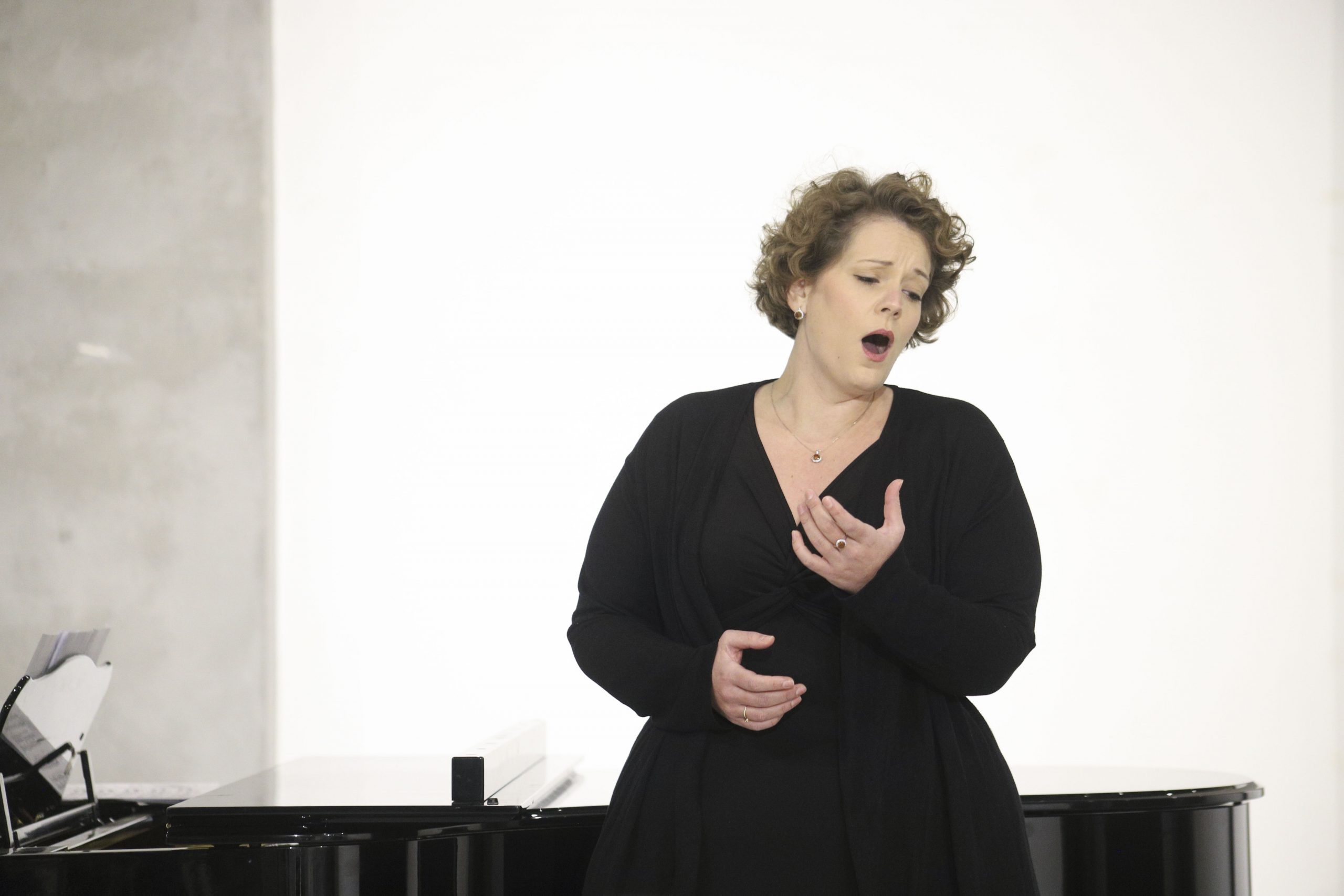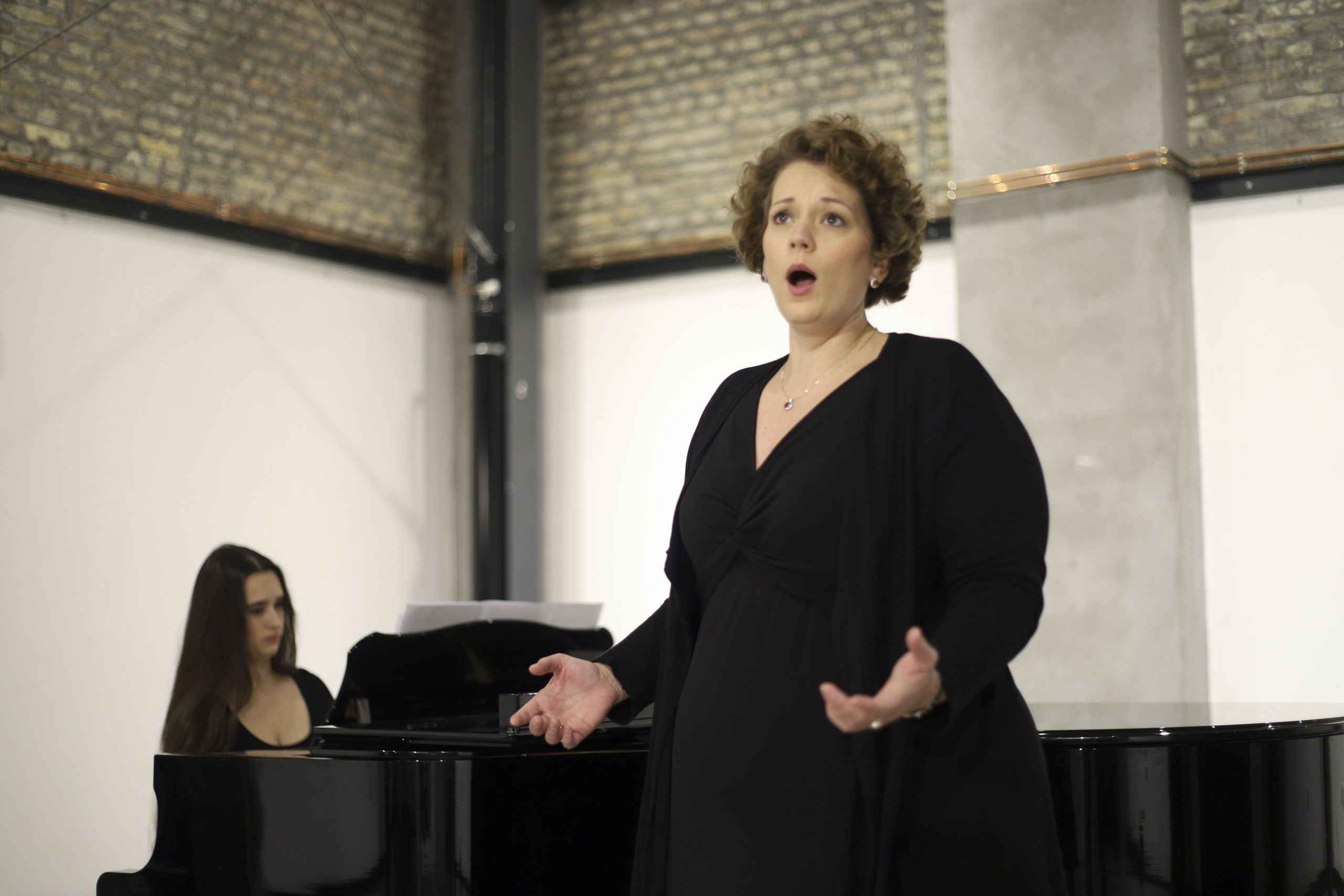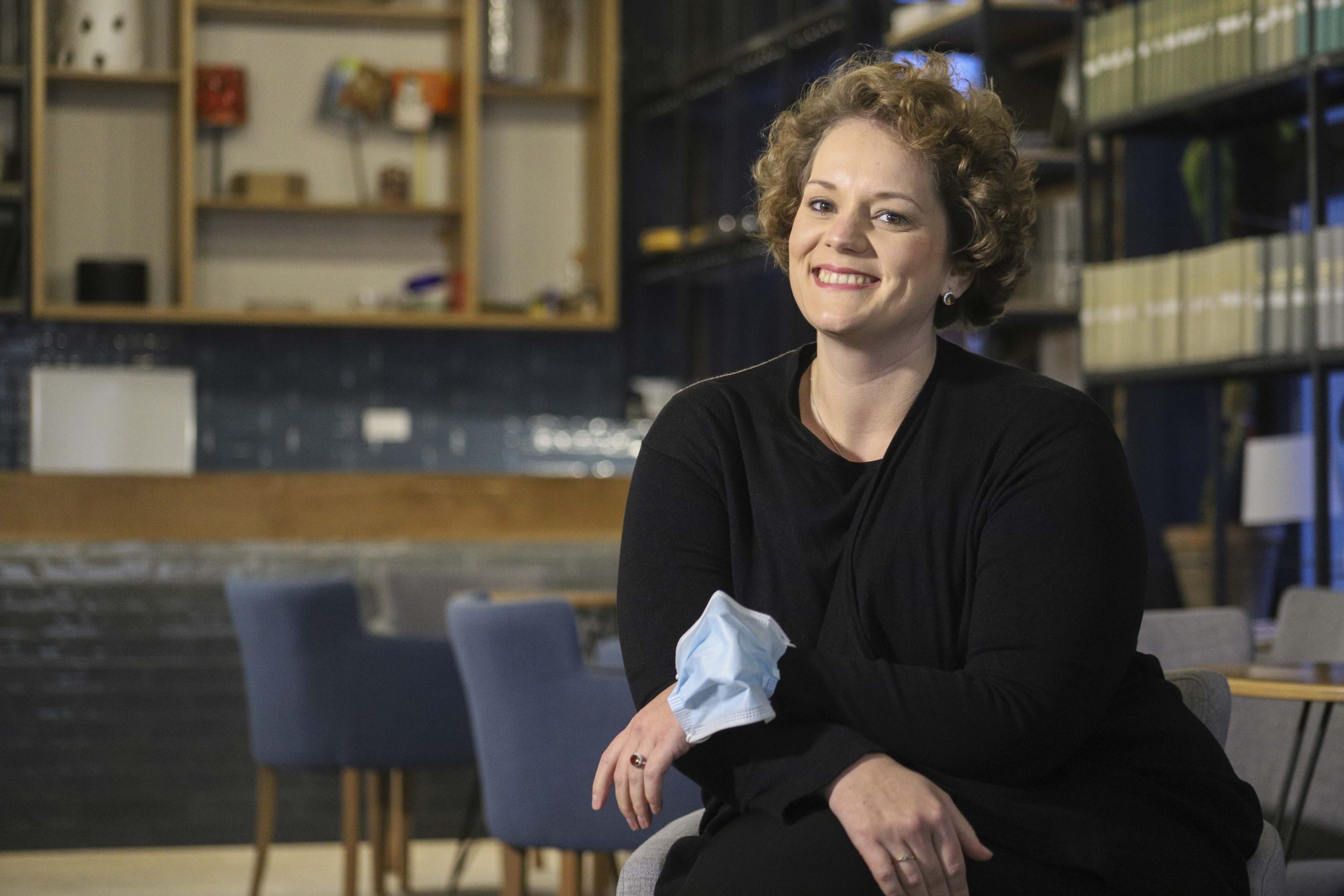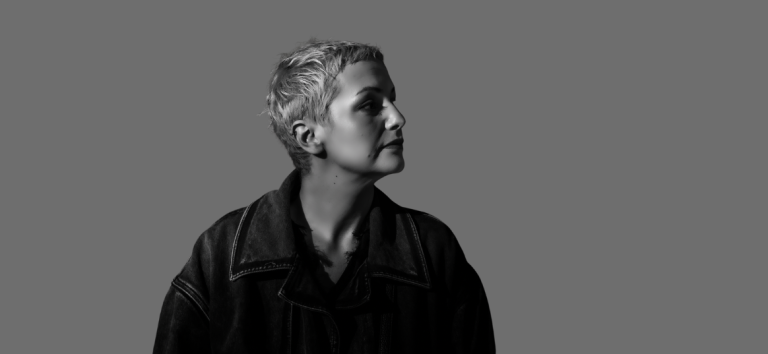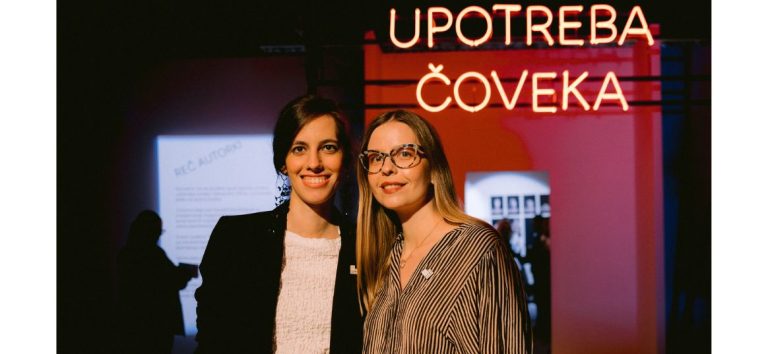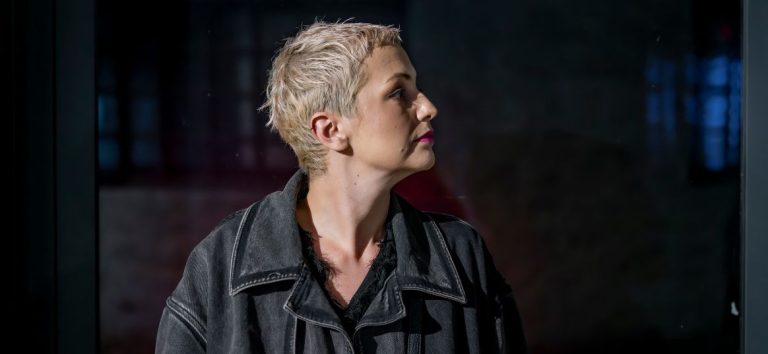When we meet some people, we know that they are destined for great achievements on the artistic scene at first glance. Sonja Šarić, the young opera singer, is one of them. At the very beginning of the interview, her calmness, elegance and charm convinced us that she was destined to do something big. However, Sonja Šarić still has a genuine smile and speaks with modesty about her impressive career, although she has performed in opera houses in Graz, Paris and other European cities, and won numerous worldwide prizes.
Sonja Šarić, the famous soprano, was born in Sombor in 1990. She is a member of the Opera Studio of the Opera in Graz, and she graduated from the Mannheim University of Music and Performing Arts. She finished Isidor Bajić Music School in Novi Sad, a city that she is very fond of, including the concert at the beginning of the year in the Svilara Cultural Station, when she wore the concert dress for the last time, having in mind that most of her performances were cancelled due to the pandemic.
You held a free concert for citizens of Novi Sad in the Svilara Cultural Station at the beginning of the year, and you had a chance to perform in great world concert halls. Those performances are certainly more demanding and recognised, but small concerts definitely have some special charm. What are your impressions of concerts you have held?
– The space, together with acoustics and visitors, has an important role when holding a concert and performing. We have an opportunity to perform in a very intimate atmosphere in spaces such as Svilara Cultural Station. There are no limits between the stage and auditorium. We all participate in the performance.
We usually connect opera with great concert halls. However, we had an example within the Kaleidoscope of Culture, where the Rigoletto opera was performed in the open, in front of the Czech Magazine. How do you perceive the ‘crossing barriers’ between elite culture and opening of the new spaces for culture?
– I would not call it elite or non-elite, but I am sure that it is necessary to educate the audience and that that’s actually the future of not only operas but art in general. You win the crowd by educating it from early childhood. Therefore, that will be the audience who would like to take their children to the theatre or some exhibition in the future. That will simply become an integral part of life.
You were born in Sombor and you became famous around the world thanks to your effort and work. Is there any difference between performing in Sombor and Serbia and other great European cities?
– In my opinion, there is no difference. I am nervous before every performance, regardless of space. I am sure that every artist gives their best every time they perform, not just me. It’s the same in all spheres of life, sometimes it is great, sometimes it is mild, and sometimes the good comes from nowhere. We cannot foresee it, but I am sure that we give our best in the very moment.
The competitive spirit has been cherished in my family, and I think that the competitive, sport spirit is present in our country in general and somehow, I transferred it to art.
You have won numerous prizes and awards, and you won the Maria Callas Grand Prix two years ago. Are some of those awards a dream come true, or is there something that is still a challenge for you, something you would like to achieve?
– I cannot say it is a dream come true, but the Maria Callas Grand Prix made me endlessly happy. The competitive spirit has been cherished in my family, and I think that the competitive, sport spirit is present in our country in general and somehow, I transferred it to art. I took part in many competitions and I was very successful, and that is something big and has been an important link in my career so far. During competitions, you can present what you have done so far under some kind of pressure and then you see how things work. That is a benefit of competing. Another important benefit is that you always have some goal you are being prepared for, which I think is important. Furthermore, an enormous benefit of competing is that, if you are lucky to reach the final rounds, you sing with an orchestra, which is not easy at all. For an amateur singer or a student, it is very hard to get an opportunity to sing with the orchestra.
We could say that the public is not familiar with all the things which an opera artist career requires. What are the things that you perhaps have had to change in your life because of your career?
– I cannot say that I have changed a lot of things, but the career requires a great deal of discipline. A human could not even get into the business. They learn during their studies what discipline is, which above all is related to taking care of instruments. In terms of voice, it includes taking care of voice technique and practising, as well as calmness and readiness to control the instrument in stressful situations such as performing in front of an audience. Actually, I use my instrument for some other things every day, all day, even when I am not on the stage, and I have an obligation to nurture it and preserve it, so that I can present it in the best way during a performance.
This year, Coronavirus has struck the whole community, especially in culture and art. How did it affect your work?
– I worked really successfully the first two months this year, I performed the role of Leonora in ‘The Troubadour’ in Linz and Mannheim. I had a concert at the beginning of the year in Svilara. That was a really great beginning of the year. This was supposed to be the most successful year in my career, but I went to Linz to sing in a play on 10 March and I came back the same day. The whole situation is difficult for all of us, especially for art, since we do not have the possibility to do our jobs, but practice in our rooms without anyone hearing it. I am glad that there are online possibilities to convey something, and that there is some way to communicate with the audience, but in my opinion, it cannot replace live performance. I think it is not the same experience for audience as well. When an audience sits and listens to your performance in a hall, they participate in the programme in some way. I think this is something we all obviously lack.
You went to ‘Isidor Bajić’ Music School in Novi Sad, and you are connected with the city in many different ways. How do you perceive Novi Sad? Do you have some favourite parts of the city?
– I really love the centre of Novi Sad, which is exceptionally beautiful, and which can match up with European cities. I am glad that Novi Sad was awarded the title of the European Capital of Culture. I am sure that all these events, such as establishing cultural stations, are the best thing that could happen to our city.
A great number of cultural events, concerts, performances and festivals are being held in Novi Sad. What are the events in the city you do not miss?
– I usually go to concerts in the Synagogue and Serbian National Theatre.
Interview held by: Milana Milovanov
Photo: Uroš Dožić

